GO BACK
WHAT AM I GOING TO DO?
WHAT AM I GOING TO DO?
PART 1 :
EVOLUTION OF THE RESEARCH QUESTION :
THE ROUGH PROCESS OF FINDING OUT WHICH TOPIC I WANTED TO FOCUS ON + THE DEVELOPMENT OF MY RESEARCH QUESTION :
Tec is a totally new species of power and influence, and how can we disrupt this power into ensuring we have the ability to learn and grow for ourselves (outside of the brackets ((bubbles)) tec devises us into) ? - [ From a spatial design perspective ]
Technology is a new species of power and influence that is drawing us into a ( curated ) ( filter ) bubble, with the use of aggressive tools of persuasion for our attention and engagement. How can we use these tools to get people's attention in the physical world ( public space ), so that we can have the ability to ( grow and learn ) ( experience ) our world / bubbles??
- What social bubbles do we live in?
- How has and will the growth of technology affect these bubbles?
- How can we bridge online + offline bubbles? Bring people together in real space?
- How can these be bridged?
- How can we get people to connect together from different ‘bubbles’?
- How did people in the past connect outside their bubbles/spheres/tribes?
- How did people in the past disconnect and therefore reconnect?
- How are these advancements in Technology bringing us further away from an open free platform and more towards medieval tribal type behaviour?
- Polarization of people from other tribes??
- Echo chambers
- How did tribes connect? Where did they share time and put aside their differences?
SOURCE : NBC NEWS
SOURCE : ABC NEWS
SOURCE : GLAMOUR
SOURCE : PAWEL KUCZYNSKI
I found it very difficult to answer this question for many reasons. Maybe it was because coloniality is so ingrained in our lives and is present all around us it can be difficult to pick it out and see where I sense it, although it is everywhere.
I want to begin with what I think coloniality is. I think that coloniality is the modern systems that we have in place, that controls access to knowledge, moral and artists resources.
So I began thinking where I see coloniality taking over in a broader sense.
Algorithms:
One example is how our lives are being shaped by algorithms that can take our data and construct a view of the world that's 'tailored’ to us. We only see what these algorithms think we want to see, placing us in bubbles or spheres. This does not allow for space for discovery outside that designated bubble you've been put in. For example the Tik-Tok ‘For you page’.
What will happen when these same algorithms will come into play in other modes of life for example where we live, or what event we come into contact with, who we come into contact with?
Where we live:
My new roommate was applying to register for our house with the Gemeente Rotterdam. We quickly realised that she needs permission for the gemeente to even be eligible to move into the room. They had a list of streets in Rotterdam that needed extra forms and even clearance from the Police to even be able to apply to register at this address. I found this strange how much control they had over who lived where.
Hotels in Dublin:
Another example of coloniality I see is how many cultural spots (event space, bars and clubs) in Dublin are being shut down and big developers are coming in and building ‘boutique hotels’ in replacement of these spaces where people of the city can meet, engage and have fun together. Even in the pandemic, where tourism is at a halt more and more hotels are being planned. Who is controlling this? Who controls what is lost and what is gained? Is the same system in place in Rotterdam, just is it more hidden?
Area to focus :
Society, socio-political, human behaviour, climate and culture would be directions I would be interested in focus on.
What I noticed is common in all of the examples I mentioned is who is controlling what we do and where? Will we have enough space to have fun, meet and interact with others that are not in our designated bubble? I am also very interested in how we as humans interact with our environment and the impact it has. At the beginning of a project I like to stay open, and let the pieces come together.
I am not quite sure which of these areas exactly yet but this will come with more research and talking with one another :)
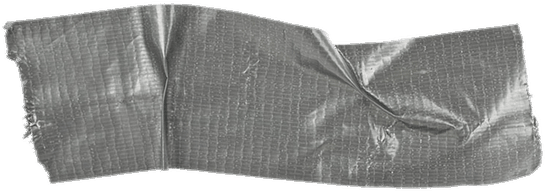
SOURCE : JORGE CHAMORRO
SOURCE : TOBIAROSE
25-09-2020
[ CLICK HERE FOR FULL ARCHIVE LIST ]
Research Topic: Technology, Homopily, Bubbles, Filter bubbles, Engagement, Attention
Research Problem:
Due to the extremely lucrative advertising industry within social media, our attention and engagement on these platforms is critical for the business model to remain as profitable as it is. What makes it even more profitable is when the advertisements that we see are tailored to us. So they can achieve this, the social media companies (Google, Facebook, Twitter, TikTok, Instagram etc) show us posts and advertisements that they think we would like, as we spend more time when we see things we like. This is all powered by a massively powerful AI, who has a very clear image of who we are, what we like, what we believe.
From this base topic I found a few aspects I find extremely interesting that are a result of our use of social media and the business models it's built on.
Homophily // Bubbles : The first thing is since we spend more time when we see posts we like, or when we read comments or posts by people that are like minded to ourselves. This of course is a nice thing to create connections with people all over the world that think just like you. However, this creates homophily. We are being placed into filter bubbles, where we can no longer see beyond who the AI thinks we are and who we would spend more time engaging with. Therefore, if we become more and more consumed by homophily as a result of the economic benefit it has for these companies, and as social networks become more and more integrated into more aspects of our lives (school, calendar, maps, communication) how do we give ourselves the chance to grow and learn for ourselves? How can we connect with others from different bubbles so we can decide who we become before an AI does? How can we counteract that algorithmically induced homophily?
Tools of persuasion // Engagement (online/offline) : The way in which these companies have been able to attain so much information about us, and place us into these bubbles (which result in homophily) is by keeping us engaged. The way in which they keep us engaged. They use a set of aggressive tools of persuasion to keep us clicking, scrolling and watching. Even the people that designed these tools, the power of the phycology behind them is so strong that they are irresistible. There is this asymmetrical power balance between us, and the machine which runs off our engagement.
Algorithms dehumanising : These algorithms and systems are being put in place are making us products, and taking no regard for the actual people it effects.
This got me thinking, what is the social impact of being placed into these curated bubbles? How do we get out of them? How could we use the same tools of persuasion to get people to engage in the physical world, with people who haven't been specially selected to suit us? What methods can we use to encourage people to engage in the real world / in public space? How can we create engaging spaces? How can we bring curiosity back to people so that they can make their own connections?
I still feel as if its quite broad, and full of many topics…
And I am not quite sure how to connect it with decolonial listening…
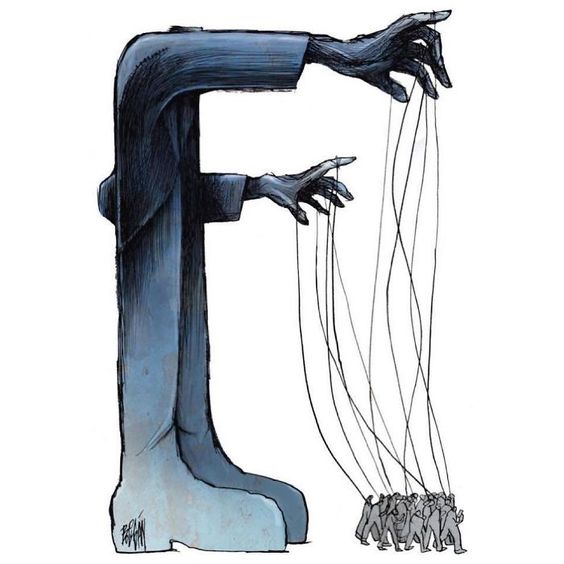
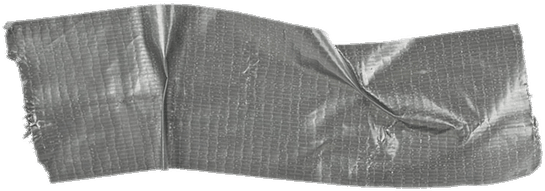
SOURCE : ANGEL BOLIGAN
SOURCE : SARA ZAHER
02-10-2020
15-10-2020
Research Topic:
Reimagining the attention economy in (social media technologies) so that it can be rehumanized and used within the public sphere.
Theoretical Framework :
Attention Economy
Research Question :
The Attention Economy uses aggressive tools of persuasion in social media technology that influences consumers and draws them into curated filtered bubbles devised for maintained/sustained consumption. What is the social impact of these curated bubbles? What can we learn from these tools, so that we can reimagine the model it is built off and implement it in the physical/public sphere so that we have the opportunity to disintegrate these bubbles we have been put into? Focusing on the attention of you people aged 12-25, as they are the demographic in the Netherlands that spend the most time on social media (Centraal Bureau voor de Statistiek), and therefore live the most in filter bubbles.
"SLEEP IS A MAJOR COMETITOR" - NETFLIX
HOW WILL THIS PROBLEM GROW
OVER TIME???
TRISTIAN HARRIS SPEAKING AT THE US SENETE..
WHAT IS THE EFFECT OF THESE BUBBLES??
VISUAL MAP OF POWER STRUCTURES @ PLAY
SOURCE : A. L. CREGO
GOOGLE AUTO CORRECT DOSENT WANT TO REHUMANIZE...
Research Problem :
Our attention and engagement on popular social media platforms such as Google, Facebook, Twitter, TikTok, and Instagram is informed and controlled by the built in advertising industry within social media. This business model is critical to the profitability of such platforms. What makes it even more profitable is when the advertisements that we see are tailored to us. To achieve this, social media companies show us posts and advertisements that they think we would like, as we spend more time when we engage with content that appeals to us. This is made possible by a massively powerful Artificial Intelligence, that has a clear image of consumer’s wants, needs, beliefs, and desires. This creates homophily where as consumers we are placed into filter bubbles where we can no longer see ourselves and each other beyond who the AI has curated us to be. Therefore, if we become more and more consumed by homophily as a result of the economic benefit it has for these companies, and as social networks become more and more integrated into more aspects of our lives (school, calendar, maps, communication) how do we give ourselves the chance to grow and learn for ourselves? How can we connect with others from different bubbles so we can decide who we become before an AI does? How can we counteract that algorithmically induced homophily? Moreover, the set of aggressive tools of persuasion used to keep us clicking, scrolling and watching and the psychology behind their design should be analysed for the power that is wielded, since I argue there is an asymmetrical power balance between us, and the machine which runs off of our engagement. How do we rehumanise this engagement?
What can we learn from these tools of persuasion to get people to engage in the physical world, with people who haven't been specially selected to suit us? What methods can we use to encourage people to engage / bring their attention back in the real world / in public sphere? How can we bring curiosity back to people so that they can make their own connections?
Relations of power @ play :
Advertising > Social Media Companies: For Social media companies to remain ‘free’, advertising is how they make their capital. Advertising powers Social Media Companies.
Money > Social Media Companies: The money is what fuels / what powers these companies to make unethical design decisions. (aggressively demanding our attention)
Notifications > Your attention: The more attention you give these companies, the more they know about you and therefore can give you more personalised ads. These notifications have the power over your attention.
Curated Filter Bubbles > What we see, do + think and who we connect with: Because it is more profitable for Social Media Companies to place you in filter bubbles, it has power over who we are and what we become. We lose the power to make our own connections.
Your attention (on social media) > Your attention (in the physical world): As a result of the aggressive tools of persuasion, we begin to lose the power to spend our time in the physical sphere as our attention is an extremely lucrative commodity online, and it is demanded by social media companies.
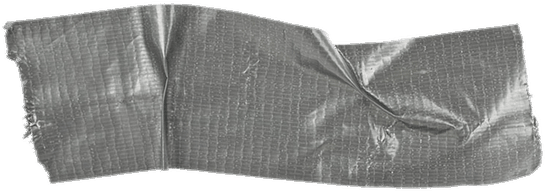
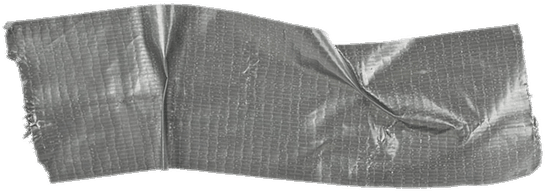
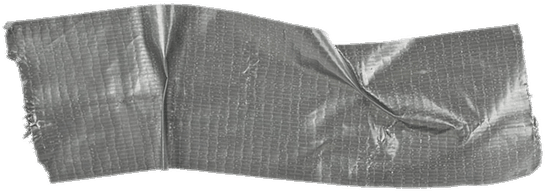
LOUIS
BRANDEIS- " THE CURSE OF BIGNESS"
- not being able to interact with people with different inetrests.
- becoming more radicalised.
- not being able to find out who you are (as everything is curated for you).
- isolation.
- a single view on things.
- being in a constant comfort zone: not seeing things that make us uncomfortable.
- notifications beeping ( to get us to look )
- 'likes' for social gratification + validation
- emails of tagged posts ( have to click to see )
- no stopping on feeds ( endless scrolling // loose track of time // no pagination )
- pull to refresh : same effect as a slot machine
- pull action is an addictive illusion of control.
- giving us suggested feeds ( youtube auto play )
- snap streaks ( the need for daily engagement )
- colour ( brigher, bolder + warmer ) we gravitate to
WHAT ARE TOOLS OF PURSUASION THAT KEEP US 'HOOKED'??
THE NEED TO CHECK OUR PHONES IS LIKE A NERVOUS TICK, ITS A COMPULSION WE CAN'T FIGHT. EVEN THE PEOPLE WHO DESIGNED IT ARE VUNERABLE TO THE TACTICS AND TOOLS THEY DESIGNED. WE CANT ESCAPE IT. SO WHAT CAN WE DO OUTSIDE OF IT TO REDUCE THE NEGATIVE EFFECTS IT HAS ON US?
BUT .. I DON'T WANT TO FORCE OTHER PEOPLE INTO A DIFFRENT FORM OF BUBBLE. THEREFORE MAYBE BETTER TO FOCOUS ON BRINGING PEOPLES ATTENTION BACK INTO THE REAL MWORLD.. THEN THEY AHVE A CHANCE OF THEIR OWN TO MEET + CONNECT WITH OTHERS??
Research Topic:
Reimagining the attention economy in (social media technologies) so that it can be rehumanized and used within the public sphere.
Theoretical Framework :
Attention Economy
Research Question :
How can we reimagine and rehumanize the model that the Attention Economy is built off, in order to implement it into the physical sphere/public space, so that we have the opportunity to engage with our spaces and connect with others outside of the curated filter bubbles we are drawn into in the online sphere?
31-10-2020
[ CLICK HERE FOR PROJECT SKETCHBOOK ]
GO BACK